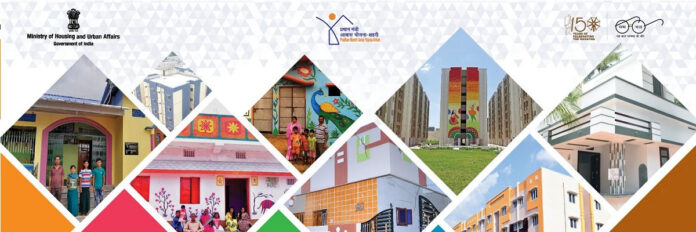NEW DELHI, Nov 29
The Pradhan Mantri Awaas Yojana Gramin (PMAY-G) has revolutionised lives, providing pucca houses that offer not just shelter but also a sense of pride, safety, and belonging. And the impact is visible in the remote hills of Nagaland, where development projects often face logistical and geographical challenges.
Here, PMAY-G has already sanctioned 48,826 houses and completed over 19,300 houses, transforming the lives of families who once struggled for basic shelter. These homes, built on sturdy stone columns and elevated structures, not only withstand the test of time but also symbolize resilience and renewal. The design prevents dampness and termite damage while ensuring longevity. For the families stepping into these homes, it is a moment of empowerment: a space where aspirations take root and flourish. The scheme’s vision encapsulates an India where development is inclusive, empowering individuals while contributing to national progress.
But the transformation does not end with a roof over one’s head. The scheme has catalysed economic empowerment across rural India by weaving local economies into its operations. In Nagaland, the beneficiaries have harnessed local resources like bamboo and lightweight concrete to reduce construction costs while building skills and self-reliance.
PMAY-G also bridges the gap between tradition and modernity, ensuring that progress respects cultural identities. In the northeastern state, the houses built under the scheme reflect the region’s architectural heritage, with modern aspects blending seamlessly with the natural landscape. Bamboo mats adorn the walls and ceilings, and CGI sheets
serve as roofing, combining tradition with functionality. These homes are not just functional; they are a reflection of how development can honour and integrate local traditions. A positive change is always welcomed, especially when it transforms lives. India has been undergoing such a remarkable transformation, steering its people toward security, dignity, and better living standards. What makes this journey extraordinary is its inclusivity
and focus on equality. In a vast and diverse country like India, where development initiatives often face challenges in reaching remote regions, the winds of change now sweep across every corner, ensuring no one is left behind. Welfare schemes and initiatives have united Indians in the collective pursuit of Viksit Bharat — a developed India.
One of the most impactful aspects of this transformation is the shift from uncertainty to stability, particularly in housing. For millions of rural Indians, inadequate housing was once a harsh reality, exposing families to extreme weather, social exclusion, and a constant state of vulnerability. Ultimately, PMAY-G is about transforming lives and, in doing so, transforming India itself. With safe and secure homes, families are free to focus on education, health, and livelihoods, paving the way for generational progress. In Nagaland, this transformation is vividly evident. Families stepping into their new homes carry with them hopes of brighter futures, embodying the scheme’s success in turning policy into prosperity.
This is the spirit of a changing India—where every citizen is a stakeholder in its growth and every dream has a foundation.



























